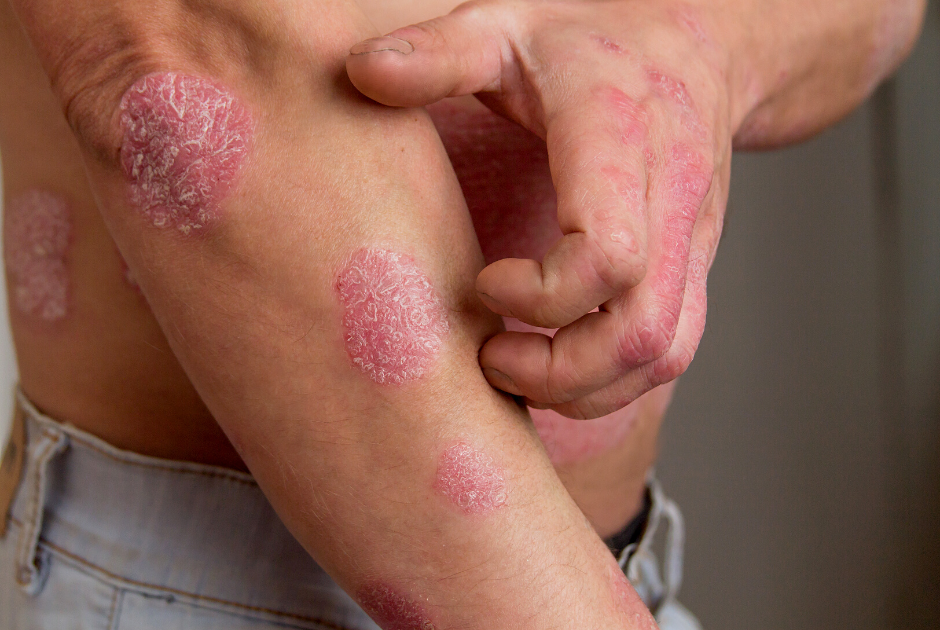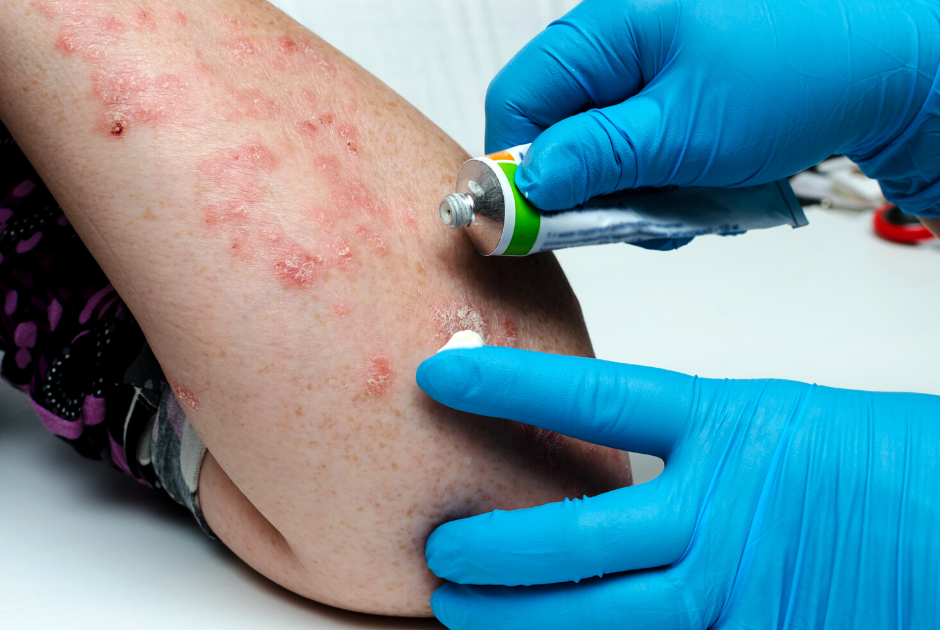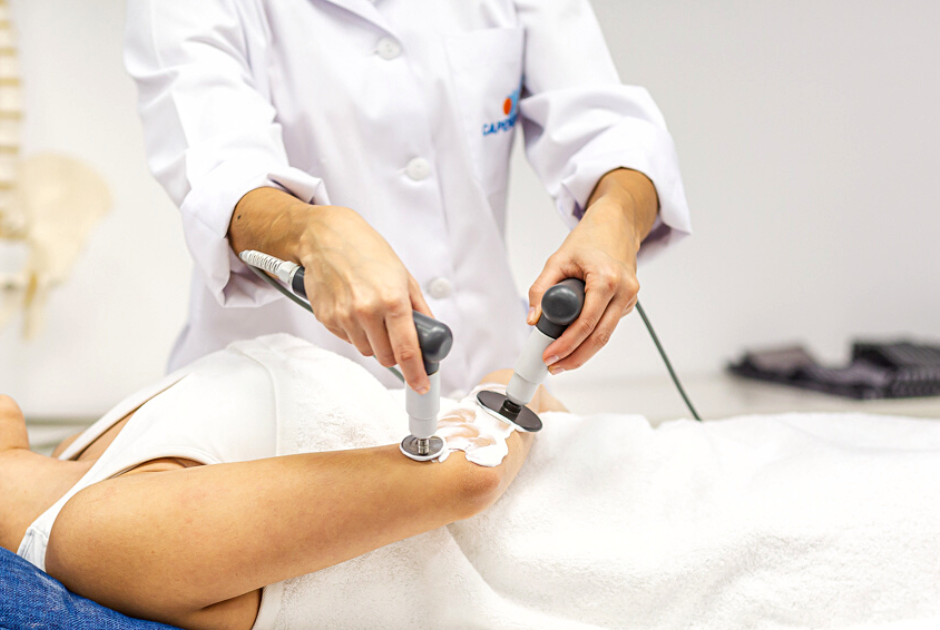
Psoriasis is an chronic inflammatory skin disease. It has characteristic scaly lesions, that get inflamed and swollen and that can be described as red skin areas covered with silvery scales.
An estimated 3% of the population suffers from psoriasis.
This disease tends to appear more often during the second decade of life, though the age range varies from 15 to 35, affecting men and women equally.
It is unknown what causes the disease, but it is considered an autoimmune disorder. Though there seems to exist a certain genetic predisposition among those suffering from psoriasis, there are other trigger factors: stress, consumption of toxic substances such as tobacco and alcohol, infectious processes and anti-inflammatory medications.
One thing is certain: it is not a contagious or hereditary disease and there is no link with skin cancer. But at this moment, there is no efficient remedial treatment.
What are the symptoms of psoriasis?
The main lesions caused by psoriasis are red patches or blotches covered with white scales of different thickness, formed by the keratinocytes that collect on the skin.
These patches can cause itching or pain and appear mostly on the elbows, forearms, knees and the lower part of the back, face, hands and foot soles. The disease also tends manifest on the scalp, nails, genitals and inside of the mouth.

But psoriasis is not only a skin problem. It can also drastically affect our state of mind. Due to the appearance of inflamed red blotches, many patients suffer from low self esteem and have a higher risk of suffering from anxiety or depression.
It’s a chronic disease: it ‘s not contagious but it is painful, disfiguring and disabling and there is no cure for it. According to the WHO, psoriasis very much has an impact on the quality of life, even if only a fairly limited surface area is affected.
There are different variants depending on the morphology of the lesions. The most common lesions are the red erythematous rashes of different sizes, covered with white scales. They are itchy and painful and tend to generate rejection from society.
How to treat psoriasis
Unfortanutely at this moment there is no cure for psoriasis. The arsenal of medicines and techniques that can be used in the treatment of psoriasis are:
- Hydrating creams and keratolytics
- Topical corticosteroids
- Tars, pitches, anthralin,… are effective medicines that are not used often because of the effects of intolerance of patients (staining of the clothes, skin irritation, etc.).
- Medicines similar to vitamin D (calcipotriol, clcitriol, tacalcitol).
- Topical retinoids (Tazarotene), considered equivalents of vitamin A.
- Phototherapy: exposition ot ultra violet (UV) radiation in closed cabins or sunbathing improve the lesions.

Truth is that the risks of certain psoriasis treatments are related to the possible side effects of the used medicines.
For instance, in the case of topical corticosteroids, its prolonged use can trigger the appearance of stretch marks, alteration of the pigmentation, infections, atrophy (destructuring) of the skin, etc.
On the other hand, when using phototherapy, close monitoring is required to avoid the undesired side effects of ultraviolet radiation, such as the appearance of skin tumors (melanomes, etc).
Treatment of psoriasis with Capenergy radiofrequency
Capenergy’s technology offers treatments that can contain the progress of psoriasis and improve its prognosis. The treatment with Capenergy furthermore has no side effects: it ‘s non-invasive and pleasant for the patient.

From the first session on, the patient will notice significant changes:
- Better hydration of the skin plates.
- The skin turns a more pinky color and more elastic, which helps reduce the discomfort and itching.
- It also stimulates the detoxification of the organism by eliminating toxins..
- Boosts the hyperoxygenation of the affected tissues.
- A state of sedation and relaxation is produced which helps alleviate the symptoms of the disease.
Ultimately, it normalizes the body’s regenerative process.
Would you like to learn more about Capenergy’s radiofrequency and how it can help you in the treatment of psoriasis and other skin diseases? Request a free demo.